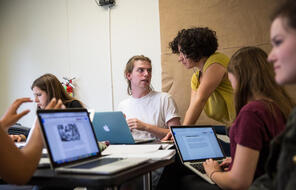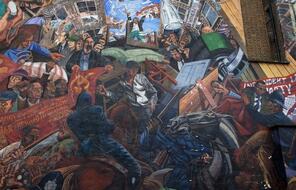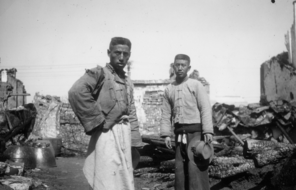Resource Library
Find compelling classroom resources, learn new teaching methods, meet standards, and make a difference in the lives of your students.
We are grateful to The Hammer Family Foundation for supporting the development of our on-demand learning and teaching resources.

Introducing Our US History Curriculum Collection
Draw from this flexible curriculum collection as you plan any middle or high school US history course. Featuring units, C3-style inquiries, and case studies, the collection will help you explore themes of democracy and freedom with your students throughout the year.
3282 Results
Teaching Mockingbird Media and Readings
Enrich your teaching of To Kill a Mockingbird with this set of videos, photographs, and readings that will help students contextualize the novel.

Confronting Apartheid
Explore South Africa’s tumultuous history from the early interactions between white European settlers and native African tribes to the implementation of apartheid and the long struggle for democracy.

Histoire
Cette catégorie comprend des ressources pour vous aider à traiter des sujets tels que l'histoire de la Shoah et d'autres génocides.

Policing and the Legacy of Racial Injustice
This series of mini-lessons is designed to help students think critically about the long and troubling history between law enforcement and Black Americans.

We the People: Expanding the Teaching of the US Founding
This 5-7 day C3-aligned inquiry explores the compelling question "How do we reckon with a history full of complexities and contradictions?"

Recommended Resources for Holocaust and Human Behavior
Find videos, lessons, and additional resources that build on the themes explored in Holocaust and Human Behavior.

Standing Up for Democracy
Designed for students in the United Kingdom, these lessons foster the critical thinking, mutual respect, and toleration necessary to bring about a more humane society.

Teaching Resources for the US Elections
Use these resources on voting, media literacy, polarization, and bias to talk about US elections with your high school and middle school students.

Current Events Toolkit
This toolkit provides flexible and adaptable tools and strategies for integrating current events into your teaching.

Current Events in the Classroom
Explore classroom resources for making connections between current events and your curriculum, including activities and discussion strategies for high school and middle school students.

The Nanjing Atrocities
Explore this collection of lesson plans and student materials that place the Nanjing Atrocities within the larger context of World War II in East Asia.



